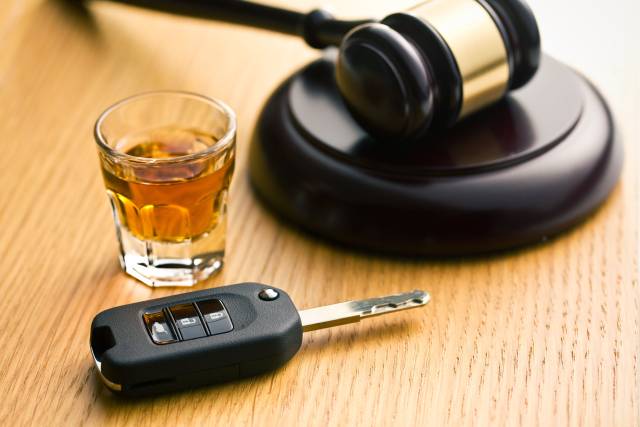In this informative article, we will explore the essential tips for understanding Colorado DUI laws.
From comprehending blood alcohol content (BAC) limits to familiarizing oneself with DUI testing procedures, readers will gain valuable insights into the intricacies of Colorado’s DUI laws.
Additionally, we will discuss the severe penalties associated with DUI offenses and the importance of hiring a skilled DUI defense attorney.
By grasping these four key aspects, individuals can navigate the legal landscape more effectively and make informed decisions when faced with DUI charges.
Blood Alcohol Content (BAC) Limits
The legal limit for blood alcohol content (BAC) in Colorado is important for individuals to be aware of when it comes to understanding DUI laws. In Colorado, it is illegal to operate a motor vehicle with a BAC of 0.08% or higher for individuals aged 21 and older. For individuals under the age of 21, the legal limit is significantly lower at 0.02%. It is crucial to note that even a small amount of alcohol can impair one’s ability to drive safely, so it is always best to avoid drinking and driving altogether.
Law enforcement agencies in Colorado use various methods to determine a driver’s BAC. The most common method is through breathalyzer tests, which measure the amount of alcohol in a person’s breath. Other methods include blood tests and urine tests. It is important to comply with these tests if lawfully requested by an officer, as refusal can result in additional penalties and consequences.
If a driver is found to have a BAC above the legal limit, they can be charged with Driving Under the Influence (DUI). Consequences for DUI offenses in Colorado can include fines, license suspension, mandatory alcohol education programs, and even jail time. Repeat offenders may face harsher penalties.
Understanding the legal BAC limit in Colorado is essential for individuals to make responsible decisions and avoid the serious consequences of drinking and driving. It is always best to plan ahead and designate a sober driver or use alternative transportation if alcohol consumption is involved.
Penalties for DUI Offenses
Drivers who are convicted of DUI offenses in Colorado may face severe penalties. The penalties for DUI offenses in Colorado are determined by several factors, including the driver’s blood alcohol content (BAC) level, any prior DUI convictions, and the presence of any aggravating circumstances.
For a first-time DUI offense in Colorado, the penalties can include up to one year in jail, fines ranging from $600 to $1,000, mandatory alcohol education and treatment programs, and the suspension of the driver’s license for up to nine months. If the driver’s BAC is above 0.20, the penalties can be even more severe, including mandatory jail time of at least ten days.
For subsequent DUI offenses, the penalties increase significantly. A second-time DUI offense can result in up to one year in jail, fines ranging from $600 to $1,500, mandatory alcohol education and treatment programs, and the suspension of the driver’s license for up to one year. A third or subsequent DUI offense carries even harsher penalties, including mandatory jail time, higher fines, and longer license suspensions.
In addition to these penalties, drivers convicted of DUI offenses may also face increased insurance costs, the installation of an ignition interlock device, and potential long-term consequences, such as difficulty finding employment or housing. It is important for drivers to understand the potential penalties they may face and to seek legal advice if charged with a DUI offense in Colorado.
DUI Testing Procedures
Understanding DUI testing procedures is crucial for drivers facing DUI charges in Colorado. When a driver is suspected of driving under the influence, law enforcement officers will typically administer various tests to determine the driver’s level of impairment. These tests can include field sobriety tests, breath tests, blood tests, and urine tests. Each test serves a specific purpose and provides different types of evidence regarding the driver’s intoxication.
The following table summarizes the different DUI testing procedures in Colorado:
| Test Type | Purpose | Pros | Cons |
|---|---|---|---|
| Field Sobriety | Assess impairment through physical cues | Non-invasive | Subjective interpretation by officers |
| Breath Test | Measure blood alcohol concentration (BAC) | Quick results | Affected by external factors |
| Blood Test | Determine BAC and identify other substances | Accurate measurement | Invasive and requires medical personnel |
| Urine Test | Identify drugs in the system | Wide range of substances | Less accurate for measuring alcohol |
It’s important to note that DUI testing procedures must be conducted in accordance with Colorado laws and regulations. Failure to follow proper testing procedures can lead to the dismissal or reduction of DUI charges. Therefore, it is crucial for drivers to be aware of their rights and to consult with a knowledgeable attorney if they believe their testing procedures were conducted improperly.
Hiring a DUI Defense Attorney
When facing DUI charges in Colorado, it is imperative to secure the services of a skilled DUI defense attorney. A DUI conviction can have serious consequences, including hefty fines, license suspension, mandatory alcohol education programs, and even jail time. Hiring a DUI defense attorney who specializes in handling DUI cases can greatly increase your chances of achieving a favorable outcome.
A DUI defense attorney will have a thorough understanding of Colorado DUI laws and will be well-versed in the various defenses that can be used to challenge the charges against you. They will carefully review the details of your case, including the evidence and any procedural errors that may have occurred during your arrest. Based on this analysis, they will develop a strong defense strategy tailored to your specific circumstances.
Additionally, a skilled DUI defense attorney will be familiar with the local court system and may have established relationships with prosecutors and judges. This can be beneficial when negotiating plea bargains or seeking reduced charges. They will also guide you through the complicated legal process, ensuring that your rights are protected every step of the way.
Ultimately, hiring a DUI defense attorney can make a significant difference in the outcome of your case. Their expertise and guidance will provide you with the best chance of minimizing the impact of DUI charges on your life.
Conclusion
In conclusion, understanding Colorado DUI laws is crucial for individuals to navigate the legal system effectively.
Being aware of the blood alcohol content limits, penalties for DUI offenses, DUI testing procedures, and the importance of hiring a DUI defense attorney can significantly impact the outcome of a case.
Adhering to these essential tips can help individuals make informed decisions and protect their rights when facing DUI charges in Colorado.




